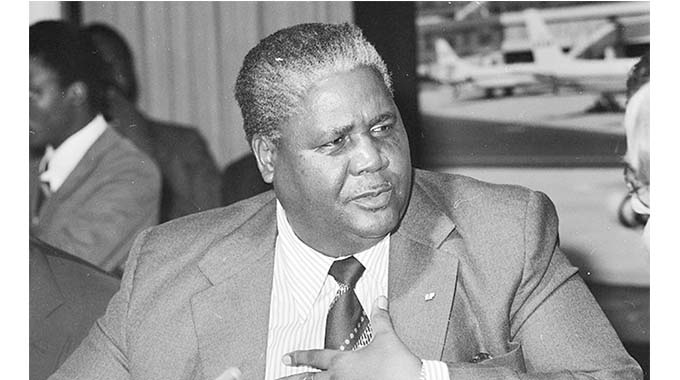Senator David Coltart believes that if the late former Vice President, Dr Joshua Mqabuko Nkomo, was alive today, Zimbabwe would have not degenerated to its current status, where political and socio-economic instability thrived.
The former education minister said Dr Nkomo would have sought to put ‘things’ in order, as he was a strong leader, who would not have allowed Zimbabwe to reach such chaotic circumstances.
“It is hard to imagine that he would have allowed the chaos that started after his death in 2000. He was a very strong man, always spoke his mind and one believes that he would have asserted his authority to make sure that courts were not undermined in the way they were and that violence did not visit us again,” said Coltart while sharing his experiences about Dr Nkomo in a Twitter space hosted by CITE on Friday, July 1 to commemorate his life.
“For such an icon, he was an incredibly humble man and I believe that his death in 1999 was a tragedy not just for his family, close friends and his political comrades but was a tragedy for the entire nation.”
Coltart remarked how Dr Nkomo always spoke out against violence, although he was a wartime leader.
“He spoke out against the violence in the 1980s and he was one of the greatest leaders of Zimbabwe. It’s important that we remember his values that he stood by and seek to reinject them in our body politic into Zimbabwe again,” he said.
The former education minister said the late vice president was a person of great integrity who remained humble despite his station.
“When Nkomo died, he died a relatively poor man. He didn’t live in a huge mansion but lived in a humble home and he kept that humility throughout his life,” Coltart said, praising how Dr Nkomo respected alternative views.
“Even in the late 1990s when our paths sort of crossed when he was in the Zanu PF government and I was critical of it, he never stopped treating me with respect. He never used harsh language against me.”
Coltart recalled that the first time he met the late nationalist was in 1976 at White City Stadium in Bulawayo and was enthused by him although he was a police officer for the white regime
“I have very fond memories of uMdala and they go back a long time. I was a young policeman and had just finished my training and came to Bulawayo. Nkomo was also in Bulawayo and I was part of the police who had to be present at his gathering. As you will appreciate, as a young white, I was trained and taught he was a fierce man, who whites should be scared of,” he said.
“We gathered with tens of thousands of people at White City Stadium and his home was in Pelandaba close by. I was 18 and in the midst of a sea of people. What struck me was the lack of antagonism Nkomo displayed and the calm way he spoke to people about the great trauma the country was facing then. He stressed that the fight was not against white people but against minority rule and oppression.”
Coltart claimed Nkomo’s words on freedom had a profound impression on him as they ran contrary to what he had heard about him before.
“I next saw Nkomo after independence when I trained as a lawyer in 1985. His brother Stephen Nkomo had been detained at Khami prison on spurious charges and in the course of representing Stephen Nkomo, I had to meet with Nkomo to get instruction, convey messages to his brother,” he narrated.
“Once again, what struck me was the kind man who actually understood that I was just a young white lawyer, thrown into a situation that had not been part of my training. Nkomo was kind to me and gave me a lot of attention. He also showed great compassion towards his brother and other senior ZAPU leaders who I was representing Edward Ndlovu, Sydney Malunga, Welshman Mabhena and others.”
The former education minister added that he also met Dr Nkomo at his business place, the Blue Lagoon, where he would be called to take instructions.
“Many ZAPU councillors had been detained in Lupane and he wanted me to represent them. Once again, although he was the senior national leader, he wasn’t haughty but showed respect and took me carefully through the legal instructions,” Coltart summed.
“Then of course, he went into government after the Unity Accord and on occasions in the 1990s, we continued to interact but he was always amazingly friendly and kind towards me.”

